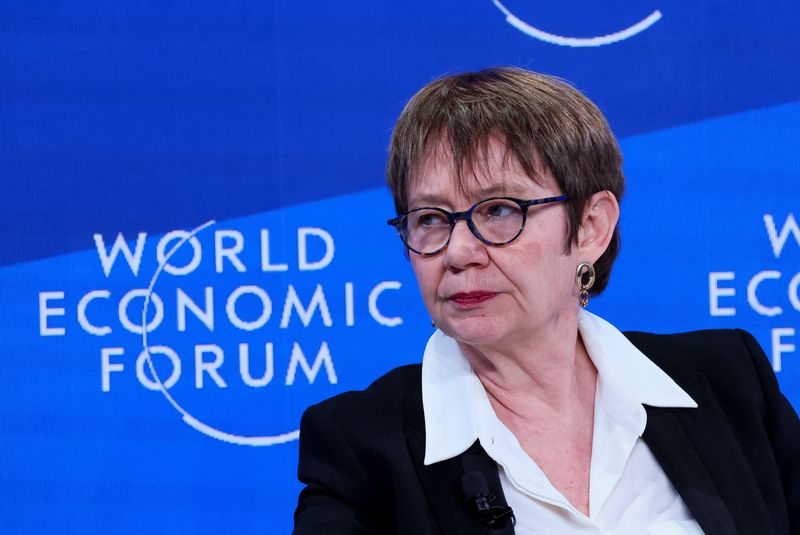By Karin Strohecker and Virginia Furness
LONDON (Reuters) - Multilateral development banks are putting much more focus on investments to tackle climate change, the president of the European Bank for Reconstruction and Development said this week, amid worries about U.S. climate policy under a Trump administration.
"MDBs are really stepping up the number and the action in their level of investment in the green sector," Odile Renaud-Basso told Reuters late on Tuesday as voting in the U.S. was underway.
President-elect Donald Trump has called climate change a hoax and said he plans to withdraw the U.S. from the landmark 2015 Paris climate agreement.
Renaud-Basso will join policy makers from around the globe next week in Azerbaijan for the UN Climate Conference COP29, with Europe and China under pressure to lead international progress on curbing planetary warming.
She said the EBRD planned to deliver billions of dollars to help poor countries pay for the effects of climate change.
In 2023, the EBRD made $7.5 billion of climate finance commitments, attracting $26.7 billion of private sector investment, data shows. The International Energy Agency estimates that a total of $2 trillion in global investment in clean energy and infrastructure will be made this year.
The EBRD has helped host Azerbaijan green its energy sector and also approved two solar projects expected to generate a combined total of 750 megawatts of energy at $666 million.
Trump has also pledged to raise tariffs on goods from China, the EU and elsewhere, raising fears of a cycle of tit-for-tat trade measures around the globe
Renaud-Basso said an increase in trade tariffs would hit growth in emerging markets.
"An increase of tensions, a ... trade war with measures and countermeasures globally, will never be good for the world, for the growth of the economy and for our region, which is dependent on the dynamic of growth in the EU or in China," she said.
"The impact will be quite important."
The multilateral lender, which operates in emerging Europe, central Asia, the Middle East and Africa, already revised its regional growth forecast lower for a second straight time in October.
Asked about Turkey's pivot to a more orthodox monetary and fiscal policy since June last year, Renaud-Basso said it was important policy makers stick to their reform course.

Ankara has reduced economic imbalances with sharp central bank rate hikes and tax hikes among other fiscal measures.
"You can discuss the path and the balance between monetary and fiscal policy, and whether fiscal policy should be tighter," she said. "But what is in my view very important is the steadiness and the fact that they keep on track."